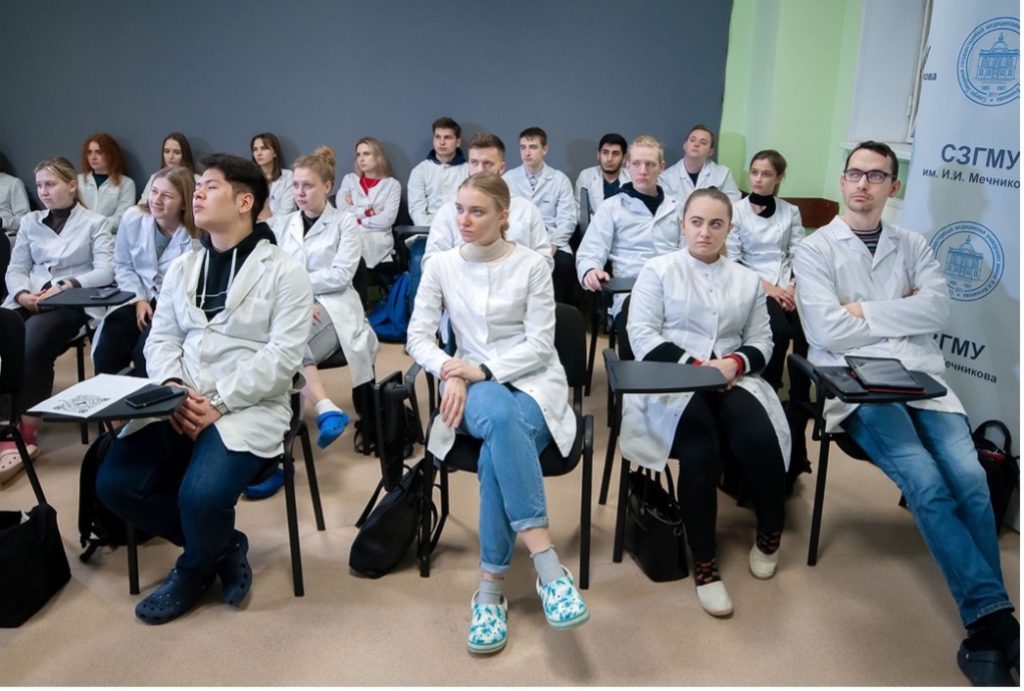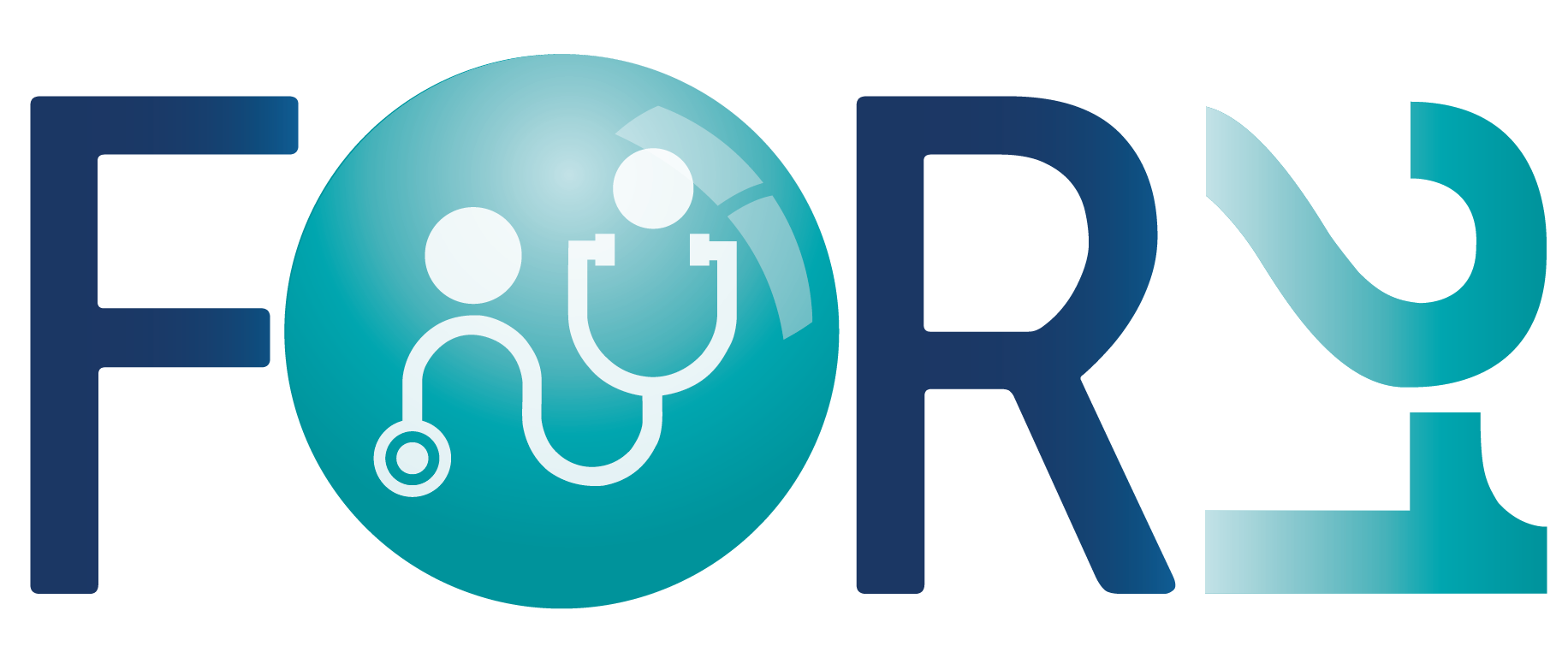Basic communication skills (Modules 1+2)
By the end of the module, students will be able to demonstrate that they:
- Understand the importance of forming a therapeutic relationship between doctor and patient, patient’s family
- Can apply appropriate verbal and non-verbal communication skills for establishing a therapeutic relationship with patient and family
- Can understand and analyze patient’s ideas and expectations in medical history-taking
- Can evaluate patient’s attitude (verbal and non-verbal clues) to suggested treatment and management
- Can create collaborative relationship by using appropriate verbal and non-verbal communication skills in
- explaining diagnostic plan and therapeutic interventions,
- explaining possible consequences of treatment and/or refusal of treatment
- explaining and required life-style changes
- and obtaining consent to changes in therapy and additional diagnostic tests
Advanced communication skills (Modules 3+4)
By the end of the module, students will be able to demonstrate that they:
- Understand the importance of forming a therapeutic relationship between doctor and patient, patient’s family under the pressure of limited time
- Can apply appropriate verbal and non-verbal skills for communicating
- Can apply appropriate
- sensitive and distressing information,
- need of change in management, intervention, diagnostic procedures
- Can understand and evaluate patient’s and family’s reaction (acceptance and/or refusal) of medical diagnosis
- Can apply communicative strategies and skills appropriate for establishing a therapeutic relationship with patient and family in order to
- mediate unexpected outcomes of treatment, course of illness
- ensure patient’s and caregivers’ compliance and consent
- Can create collaborative relationship by using appropriate verbal and non-verbal communication skills
- to ensure patient’s and family’s understanding of life-changing outcomes of medical intervention
- to support patient’s and family in understanding consequences of difficult prognosis (HIV, sexually transmitted diseases, overweight, skin disorders, amputations, etc.)
WP/responsible | Deliverable | Deadline | |
WP1 KMU | D.1.1. | CDCs established, and staffed, and equipment purchased | M10 |
D.1.2. | Documentation for each CDC | M5 | |
D.1.3 | Plan for training delivery and training certification | M6 | |
WP2 KazNMU | D.2.1 | Analysis of current communication skills teaching | M3 |
D.2.2. | Strategic plan for development of PCCSP | M5 | |
WP3 KMU | D.3.1 | Patient-Centered Communication Skills Programme Plan | M5 |
D.3.2. | Teaching and learning resources for PCCSP | M36 | |
D.3.3. | Set-up of online tool-kit for PCCSP | M9 | |
D.3.4. | Delivery of the Patient-Centred Communication Skills Programme in PCUs | M10 | |
WP4 UoL | D.4.1 | Assessment Tools Package Structure | M9 |
D.4.2 | Assessment tools for piloting PCCSP | M10 | |
D.4.3. | VP and SP assessment tools and Assessment Tools for Final State Exam constructed | M42 | |
D.4.4 | Assessment data collected and analysed | M41 | |
D.4.5 | Assessment reports constructed | M43 | |
WP5 UoO | D.5.1 | Quality Plan | M2 |
D.5.2 | Evaluation Plan | M3 | |
D.5.3 | Quality Report | M43 | |
D.5.4 | Evaluation Report | M43 | |
WP6 AUTH | D.6.1 | Dissemination and Sustainability Working Group. Dissemination strategy | M2 |
D.6.2. | Project web-site | M6 | |
D.6.3. | CDC network established | M10 | |
D.6.4. | Dissemination through relevant events and publications | M42 | |
WP7 AUTH | D.7.1 | Partnership Agreement | M3 |
D.7.2. | Project Management Plan | M43 | |
D.7.3 | Project Reports | M43 |
Karaganda Medical University — School of Communication Skills
Asfendiyarov Kazakh National Medical University — Center of Communication Skills
Samarkand State Medical University — Communication Skills development Center
Tashkent Medical Academy — Communication Skills Center
Tyumen State Medical University — Communication Skills Development Center
The Patient-Centered Communication Skills Programme (PCCSP) consists of 4 modules, two of which develop Basic communication skills and another two – Advanced. Each skills level includes 6 Virtual Patient (VP) cases and 6 Standardized Patient (SP) cases delivered to the students through the flipped classroom approach. The PCCSP is being designed to be adaptable to each Partner Country University (PCU) curriculum and be introduced either in new courses or modify the existing ones. For all PCUs teaching communication skills based on VPs and SPs with the application of flipped classroom approach is a unique and innovative experience, thus all of them are totally updating teaching methodology and content.
In Fall semester 2021-22, the first 6 Basic VP cases went life in all the PCUs and received valuable feedback from students and tutors for further PCCSP development.
At Karaganda Medical University, Kazakhstan, the 6 Basic VPs developed by FOR21 were integrated into the discipline “General Medicine Practice” for 5th year students of “General Medicine” Department. Total number of students participated in piloting is 35, that is 4 students’ groups.


At North Western State Medical University Named After I I Mechnikov, Russia, 6 VPs were integrated into the 1st Module of a new “Communication skills of a doctor” discipline at the 3rd year of “General Medicine” Department. In piloting of 6 VPs 689 students participated, on the whole – 68 groups of students.


At Tyumen State Medical University, Russia, the first 6 VPs were integrated into the discipline “Communicative training of patient-centered skills” for 5th year students of “General Medicine” educational program (department of psychiatry and narcology). Total number of students participated in piloting is 14, that is 1 students’ groups (the highest possible number due to COVID-19 pandemic and lock down in the city of Tyumen).
At Samarkand State Medical University, Uzbekistan, 6 VPs were integrated into the 1st Module of a new “Communication skills of a doctor” discipline at the 3rd year of “General Medicine” Department. In piloting of 6 VPs 480 students participated, on the whole – 48 groups of students.
At Tashkent Medical Academy, Uzbekistan, 6 VPs were integrated into the 1st Module of a new “Public health and management”, “Communication Training” discipline at the 4-6th year of “Medical Faculty, Medical-Pedagogical Faculty”. This discipline was introduced into TMA curriculum from 2021-2022 academic year. In piloting of 6 VPs 169 students participated, on the whole – 13 groups of students.


Overall, after piloting 6 VPs, PCUs came up with the following main conclusions of PCCSP:
- Students skills in patient-centred communication are underdeveloped and need active training;
- Flipped classroom approach and use of VPs in communication trainings is efficient, reasonable and appropriate. The majority of students are highly motivated to work with VPs as they present a totally new and productive learning experience;
- >85% of students consider, that they will be able to apply knowledge and communication skills obtained in further practice;
- >90% of students were positive to work with VPs during in-class learning events;
- Students offer to attract Standardized patients into flipped classroom sessions for after-class activities instead of reflective essays and video recordings of role-plays.
- Students have to be trained to write reflective essays, since this learning activity develops their clinical thinking and reasoning;
- Students should be trained to resume and summarize logically;
- At the beginning of flipped classrooms students were confused with a new regime of learning in the form of pre-class and after class activities. After finishing the Module students learnt to develop their skills in self-study and became more involved into pre and after-class activities;
- Communication trainings should be implemented in tough cooperation of clinical staff with linguists, because tutors found out students’ request on learning sessions to develop linguistic skills for communication with a patient.
After working VP cases with students through the flipped classroom approach PCUs tutors highlighted areas of improvement in teaching and learning practices of PCCSP. Students’ feedback was also received. Both opinions were taken by the FOR21 consortium for VP cases update in response to feedback.
Curriculum development and integration of PCCSP is expected to be finalized until September 2022.




